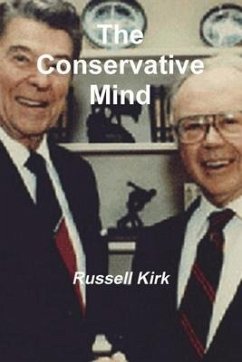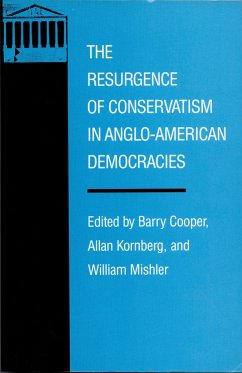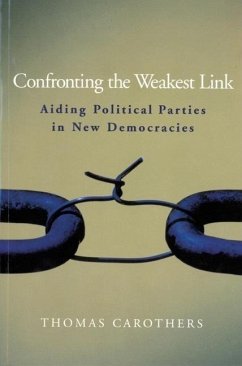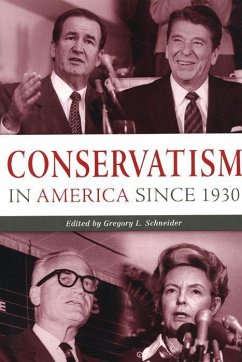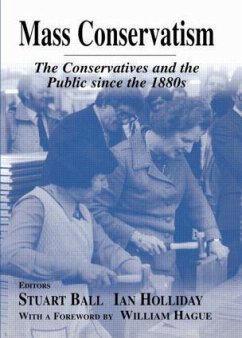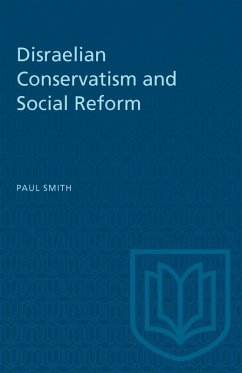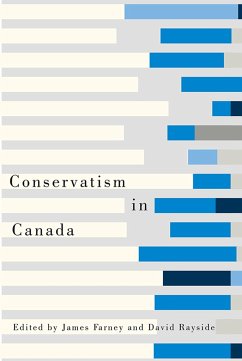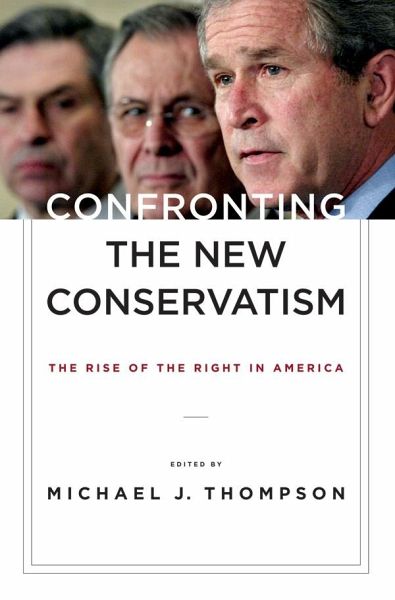
Confronting the New Conservatism
The Rise of the Right in America
Herausgeber: Thompson, Michael

PAYBACK Punkte
20 °P sammeln!
"Thompson has assembled an exciting list of topics written by a high quality group of scholars. The essays are sharp and academically rigorous, but also highly engaging and readable."--Judith Grant, Professor of Political Science, Ohio UniversityWilliam Kristol, Paul Wolfowitz, Donald Rumsfeld, Condoleeza Rice, George F. Will, Jeanne Kirkpatrick, John Bolton. These are today's neoconservatives. Confident, clear-cut, and a political force to be reckoned with. But how to define this new conservatism? What is new about it? In this volume, some of today's top political scholars take on the charge ...
"Thompson has assembled an exciting list of topics written by a high quality group of scholars. The essays are sharp and academically rigorous, but also highly engaging and readable."--Judith Grant, Professor of Political Science, Ohio UniversityWilliam Kristol, Paul Wolfowitz, Donald Rumsfeld, Condoleeza Rice, George F. Will, Jeanne Kirkpatrick, John Bolton. These are today's neoconservatives. Confident, clear-cut, and a political force to be reckoned with. But how to define this new conservatism? What is new about it? In this volume, some of today's top political scholars take on the charge of explaining, defining, and confronting the new conservatism of the last 25 years. The authors examine the ideas, policies and roots of this ideological movement showing that contemporary neoconservatism has been able to blend many of the aspects of social conservatism-such as religious populism and nationalism-with economic liberalism and the rhetoric of equality of opportunity and individualism. With their emphasis on dismantling the welfare state and a rhetorical return to economic laissez faire and individual rights, neconservatives have been able to harness populist sentiment in terms of both economics and cultural issues. And with their belief in moral and cultural "simplicity," their turn away from science, their conviction in American superiority on the global stage, and their embrace of "anti-government" rhetoric, they have effectively changed the nature of the American political landscape. The contributors to Confronting the New Conservatism offer a trenchant analysis and substantive critique of the neoconservative ethos, arguing that it is an ideology that needs to be better understoodif change is to be had.Contributors: Stanley Aronowitz, Chip Berlet, Stephen Eric Bronner, Lawrence Dav




